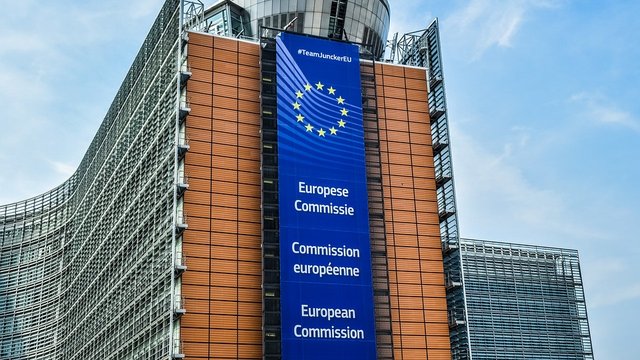European Commission sees no energy security threats to Slovakia, Hungary as Ukraine sanctions Lukoil's oil transit

The European Commission has carried out a preliminary assessment of the situation with Ukraine's sanctions on the transit of Russian Lukoil's oil to Slovakia and Hungary and concluded that there is no threat to these countries' energy security, Spokesperson for the European Commission Balazs Ujvari said during a press briefing in Brussels on Thursday, adding that there is no need in holding consultations on the issue with the countries.
"Executive Vice-President [Valdis] Dombrovskis the issue in detail with Ukrainian Prime Minister Denys Shmyhal and after this meeting also addressed the second letter to the ministers of Hungary and Slovakia to provide our preliminary analysis and encourage the two member states to share additional and detailed information on this topic with the Commission. According to information that we have at our disposal and in line with the internal Commission analysis, it appears that the sanctions imposed by Ukraine on Lukoil do not affect the ongoing oil transit operations via Druzhba carried out by trading companies as long as Lukoil is not the formal owner of the oil," he said.
According to the spokesperson, the European Commission services are still waiting for a detailed reply from Slovakia and Hungary "that would allow us to confirm that this is indeed the case."
"In addition to that I can confirm that the Commission services have preliminarily concluded as well that urgent consultations do not appear to be guaranteed at this point in time as there is no current indication of any immediate risk to the security of supply. Now at this stage, as I have said, verifying facts and developing a common understanding of the situation is absolutely essential," Ujvari said.
Another Spokesperson for the European Commission Adalbert Jahnz said "there are other alternatives" for Hungary and Slovakia which include, for example, possible increases in imports from the alternative pipeline from Croatia which has adequate spare capacity for both countries' volumes.
"Again, this is very much preliminary analysis and we continue to be in discussion with those countries noting, of course, that we have made enormous strides in diversification of our oil supplies. And overall Russian crude oil now represents about 3% of all of the EU's crude oil imports," he said.







